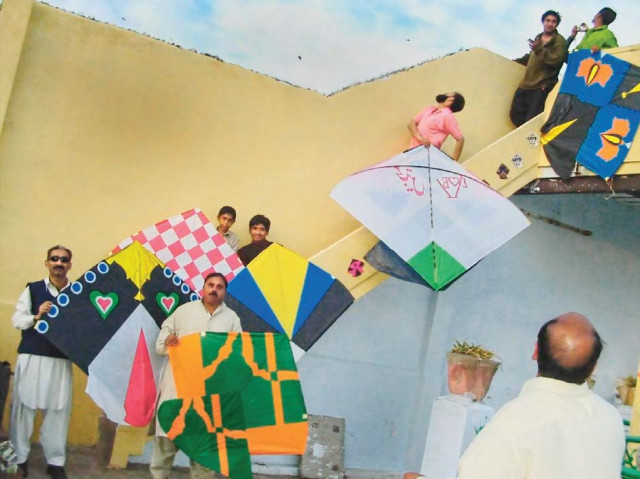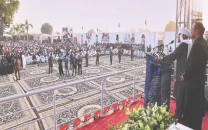Public policy: Do they want a safe Basant?
For the last two years though, including yesterday, kite-flying has not been allowed on Basant.

For the last two years though, including yesterday, kite-flying has not been allowed on Basant. Former city government officials say that several measures can be introduced to make the event acceptably safe, to the ultimate benefit of the kite and tourism industries, as well as kite-flying enthusiasts. But the government chose to ban it outright, indicating other motives for the restriction.
Khalid Sultan, who served as district coordination officer of Lahore between 2002 and 2005, says accidents occur in any sport or outdoor activity, but there are preventive measures that can minimise the risks.
Community involvement is key to making Basant safer, he said. Each neighbourhood should form a committee whose responsibility would be to report the use of metal wire or gunfire to the police, or resolve disputes between neighbours over loud music, for example. Committee members could read out safety measures at public places like mosques and bazaars.
How do we pay for this? Through licensing and taxation, says Sultan. Licensing kite-fliers and taxing parties could help raise money to erect check posts, compensate those injured during Basant and subsidise safety devices such as the motorcycle antennas.
“The ban shows that the government and the police are poor law enforcers but still keen on controlling people. If they fail to regulate something or enforce a certain law, they decide to ban it,” he said.
“We are propagating an escapist, defeatist mentality by allowing this ban. It has curbed economic activity and the only entertainment Lahoris had,” he said. Kite makers, event organisers and hotels are deprived of the tourism revenue associated with Basant, hurting an already moribund economy.
Sultan also queries the tacit assumption that all or even most of Basant-related deaths are caused by kite-flying. Most deaths, he said, occurred when young children, chasing stray kites as they drift to the ground, ran onto the roads and got run over by a vehicle or fell off their roof. Press reports from the time back up his assertion, showing that a large majority of the deaths on Basant in 2006 were of this nature.
Cases of motorcyclists getting killed by string are relatively rare, he said. And putting an “antenna” on motorcycles, as well as banning motorcycles for the Basant weekend, would significantly reduce such instances, he added.
The deaths and injuries, as well as damage to the power grid, caused when kites flown with metal twine get tangled in electricity lines could be curbed by regulating the manufacturers and locally through neighbourhood committees, he suggested.
Sheikh Saleem, the general secretary of the kite flying association, agrees that safety measures can be introduced to reduce the number of deaths and injuries on Basant. He suggested that engaging women in the event would automatically make it safer. “Every time a group of men come together, there is the possibility of fights resulting in firing. If wives, mothers and sisters participate, this will go down,” he says.
Another former DCO said the government, if and when it allows kite-flying on Basant, must plan it months in advance rather than leaving the question to the last minute, as it did this year. “The district and provincial governments should take a decision by December whether or not to hold Basant. A comprehensive plan for security and for engaging the public and different socio-religious groups could then be devised accordingly,” he said.
The former DCO said community policing of kite-flying wouldn’t be easy. Groups like the kite-flying associations or neighbourhood committees would be reluctant to file complaints about kite-flyers using metal wire or revellers shooting bullets into the sky, he said, for fear they would make enemies. They might be effective in some neighbourhoods, he said. “But they will not be effective in curbing aerial firing, alcohol consumption and blaring stereos at private parties,” he said.
Herein lies, perhaps, the real reason for the Basant ban.
Rao Akram, the chairman of the Anti-Kite Democratic Front, a group formed in 1995 to denounce the “immoral activities” that Basant supposedly encourages, is, naturally, delighted that the ban will stay in place this year. He wants kite-flying to remain banned even if it can be made safer. “Basant is just an excuse to hold mujras and drink alcohol,” he says.
Published in The Express Tribune, February 28th, 2011.



















COMMENTS
Comments are moderated and generally will be posted if they are on-topic and not abusive.
For more information, please see our Comments FAQ